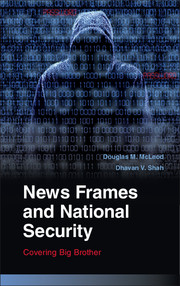Preface and Acknowledgments
Published online by Cambridge University Press: 18 December 2014
Summary
When this story began more than a decade ago in the early fall of 2001, we were relatively new professors at the University of Wisconsin. We were in the process of launching a research collaboration that has lasted to this day. We were on our way to work when a report came over the radio that a second plane had struck the World Trade Center. Within the hour, we were both at work watching CNN in a conference room along with other faculty, staff, and students. Like everyone else in the room – and so many others across the country – we sensed that the world was about to change.
What we didn’t know was how profound this change would be, nor that we would spend the next decade writing this book that focuses on one particular aspect of this change, the War on Terror, how it was covered in the media, and the effects that this coverage had on the public. But we did know that the public opinion survey that we were planning was going to have to be redesigned to deal with public reactions to the 9/11 attacks. As the ensuing weeks unfolded, we read news reports about the federal government’s reorganization of its various intelligence agencies, as well as proposed legislation that would allow them to fight terrorism more effectively. This legislation, dubbed the PATRIOT Act, was passed overwhelmingly by both the House and Senate and signed into law by President Bush on October 26, 2001, only 45 days after the 9/11 terrorist attacks.
- Type
- Chapter
- Information
- News Frames and National SecurityCovering Big Brother, pp. ix - xviPublisher: Cambridge University PressPrint publication year: 2014



